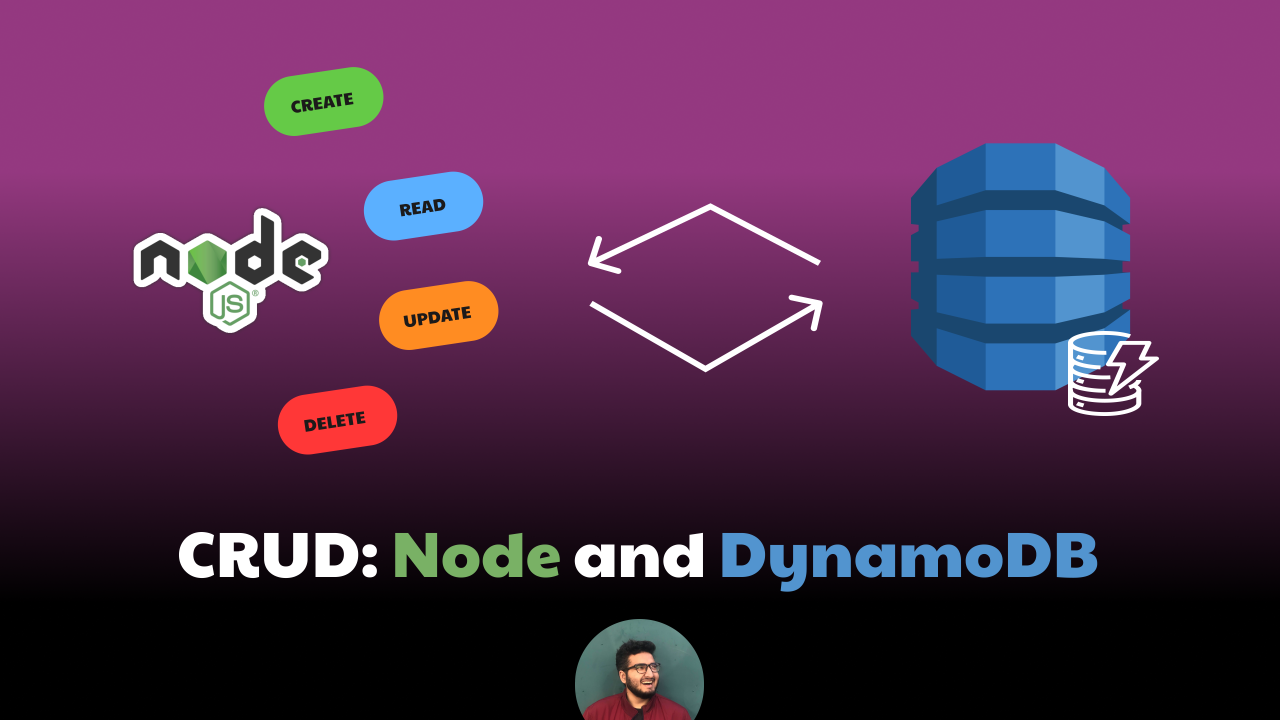
Node.js and DynamoDB: Mastering CRUD Operations for Beginners
Asim Hafeez
Senior Software Engineer | Lead | AI | LLMs | System Design | Blockchain | AWS
CRUD: Stands for Create, Read, Update, and Delete — the four main things you can do with the information in your programs.
When you’re working with data, you need a place to store it. This is where databases come in. One type of database is called DynamoDB. It’s like a special kind of storage provided by Amazon.
What is DynamoDB?
Amazon DynamoDB is a fast, fully managed NoSQL database service provided by AWS. It’s designed to deliver high performance at any scale and offers seamless scalability and reliability. In this blog post, we will walk through the process of performing CRUD (Create, Read, Update, Delete) operations in DynamoDB using Node.js.
Let’s start from scratch…
Setting Up Your Environment
Before you start, ensure you have Node.js installed on your machine. You’ll also need an AWS account with access to DynamoDB. If you haven’t set up the AWS CLI and configured your credentials, now is the time to do so.
Once your environment is set up, create a new Node.js project folder and navigate to it using your terminal.
mkdir dynamodb-crud
cd dynamodb-crud
Installing Dependencies
In your project folder, initialize a new Node.js project by running:
npm init -y
Next, you’ll need the AWS SDK to interact with DynamoDB. Install it using:
npm install aws-sdk
CRUD Operations
1. Setting Up AWS SDK
Require the AWS SDK and configure it with your credentials: You can do it in your config file.
const AWS = require('aws-sdk');
AWS.config.update({
region: 'us-east-1', // Change to your desired region
accessKeyId: 'YOUR_ACCESS_KEY_ID',
secretAccessKey: 'YOUR_SECRET_ACCESS_KEY'
});
const dynamodb = new AWS.DynamoDB();
const docClient = new AWS.DynamoDB.DocumentClient();
Replace 'YOUR_ACCESS_KEY_ID' and 'YOUR_SECRET_ACCESS_KEY' with your actual AWS IAM user credentials.
2. Creating an Item
Let’s start by creating a new item in a DynamoDB table:
const params = {
TableName: 'user',
Item: {
id: '1',
name: 'Asim Hafeez',
email: '[email protected]'
}
};
docClient.put(params, (err, data) => {
if (err) {
console.error('Error creating item:', err);
} else {
console.log('Item created successfully:', data);
}
});
Replace 'user' with the actual name of your DynamoDB table.
3. Reading an Item
To read an item from the table, you can use the get method:
const getItemParams = {
TableName: 'user',
Key: {
id: '1'
}
};
docClient.get(getItemParams, (err, data) => {
if (err) {
console.error('Error reading item:', err);
} else {
console.log('Read item:', data.Item);
}
});
4. Updating an Item
Updating an item involves using the update method:
const updateParams = {
TableName: 'user',
Key: {
id: '1'
},
UpdateExpression: 'SET email = :newEmail',
ExpressionAttributeValues: {
':newEmail': '[email protected]'
},
ReturnValues: 'UPDATED_NEW'
};
docClient.update(updateParams, (err, data) => {
if (err) {
console.error('Error updating item:', err);
} else {
console.log('Item updated successfully:', data);
}
});
5. Deleting an Item
To delete an item, use the delete method:
const deleteParams = {
TableName: 'user',
Key: {
id: '1'
}
};
docClient.delete(deleteParams, (err, data) => {
if (err) {
console.error('Error deleting item:', err);
} else {
console.log('Item deleted successfully:', data);
}
});
Conclusion
In this article, we’ve talked about the basics of working with DynamoDB using Node.js. We showed you how to do four main things: adding, finding, updating, and removing items from a DynamoDB storage area. DynamoDB is good at being flexible and handling lots of stuff, which makes it a great choice for keeping different kinds of information.
Using DynamoDB with Node.js is like putting two puzzle pieces together — they fit well. We also reminded you to replace the pretend names and numbers with the real ones when you’re working on your project. Once you understand this stuff, you can make even fancier computer programs that use DynamoDB to keep your information neat and organized.
If the article helped you, don’t forget to give it a clap ?? and share it with your friends ????.
Business Development Manger
11 个月IDC Business Value of Amazon DynamoDB https://tinyurl.com/32ayyzy9 #Amazon #DynamoDB
Research Assistant | Computer Scientist
1 年Really helpful.
Cloud & DevOps Engineer | SRE Advocate | Multi-Cloud Expertise in AWS, Azure, GCP | Scalable & Reliable Infrastructure Solutions Architect
1 年Really informative, keep it up.